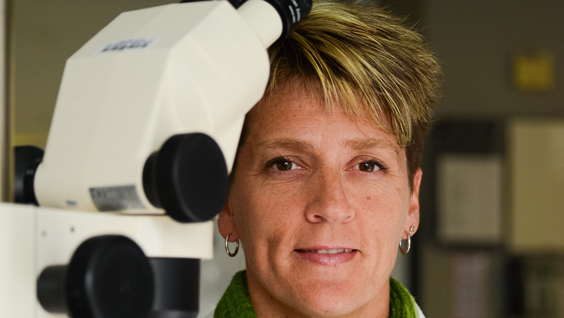Malene Hansen, PhD, associate professor in our Development, Aging, and Regeneration Program has been awarded the Julie Martin Mid-Career Award in Aging Research. The award includes a new grant to continue her research in the field of aging. Hansen is a three-time American Federation for Aging Research (AFAR) grant recipient. AFAR’s grants are given to scientists at institutions nationwide based on hard work, ingenuity, and leadership that advance cutting-edge research to help us live healthier, longer lives.
The following is an interview with Malene Hansen about her background and goals for her research.
What inspired you to get into aging research? After working on cancer – mostly an age-related disease – as a graduate student at the University of Copenhagen, Denmark, I wanted to investigate the molecular genetics of the aging process itself. New molecular insights into the process of aging may lead to a better understanding of not only cancer but many age-related diseases, potentially facilitating future treatments.
How will AFAR’s support further your research at this point in your career? The Julie Martin Mid-Career Award will allow my team to implement two new research approaches, namely to use mammalian cell culture as well as drug screening to investigate the molecular pathways important to the aging process. These approaches nicely complement our primary model system, the nematode C. elegans, and will facilitate our research into the role of the cellular process called autophagy, by which the cell can recycle intracellular components in organismal aging.
What’s exciting about your research’s potential impact? Autophagy is a cellular recycling process that has been linked to many age-related diseases as well as aging itself. Understanding how this process is important for aging is a key goal for us, and the new award will allow us to identify novel regulators and drugs that regulate this process, providing potential novel avenues for future treatments.
In three sentences, how would you describe your research? Aging is a fundamental biological process and the most common risk factor for a long list of serious diseases, including cancer. We are interested in understanding the molecular changes that happen over time in the cells of an organism, and how such changes contribute to the organismal decline with age. Identification of mechanisms that regulate these molecular events may ultimately allow us to develop treatments to not just one but many age-related diseases.
